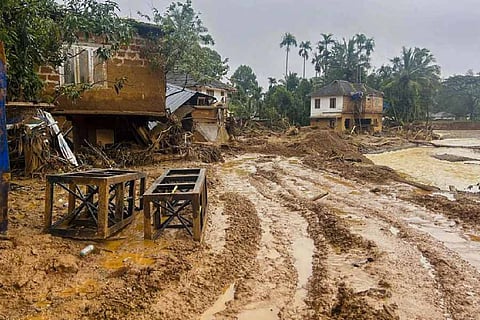

The Kerala High Court has described the recent landslides in Wayanad, which claimed over 200 lives, as a stark reaction of nature to human "apathy and greed." The court emphasized that warning signs had long been evident, but were ignored in favor of a development agenda purportedly aimed at economic prosperity. The natural disasters in 2018 and 2019, the ongoing pandemic, and the recent Wayanad landslides have, according to the court, starkly highlighted the consequences of this approach.
The court indicated its intention to thoroughly review the state's current policies related to the exploitation of natural resources, environmental preservation, forest and wildlife conservation, disaster management, and sustainable development goals. The bench outlined a three-stage approach to achieving the goals of the public interest litigation (PIL) it is addressing.
In the first stage, the focus will be on gathering scientific data to identify ecologically sensitive areas within the state. These areas will then be notified on a district-by-district basis. The second stage involves collecting data on the ideal composition of regulatory agencies and advisory boards to ensure these bodies can function effectively to meet their intended objectives. As part of this, the state is required to conduct environmental impact assessments and hold public hearings to gather the views of local residents.
The court has also directed the Central and Kerala governments to submit affidavits within three weeks. These affidavits must clarify whether, in light of the recent natural disasters, the governments intend to increase the number of subject experts as required under the Disaster Management Act (DMA) of 2005. Additionally, the affidavits should confirm whether Advisory Committees, as outlined in the DMA, have been established at national, state, and district levels. They must also provide details of the Disaster Management Plans at these levels, including any recent updates.
Furthermore, the court has asked for detailed information on the funds allocated for disaster management activities and programs. The Central government is also required to report on the steps taken to include a checklist of safety measures for landslide-prone areas in the state's Building Rules.
The Kerala High Court’s actions reflect a growing concern over the environmental impact of unchecked development and the need for more robust disaster management and environmental protection measures in the state.
